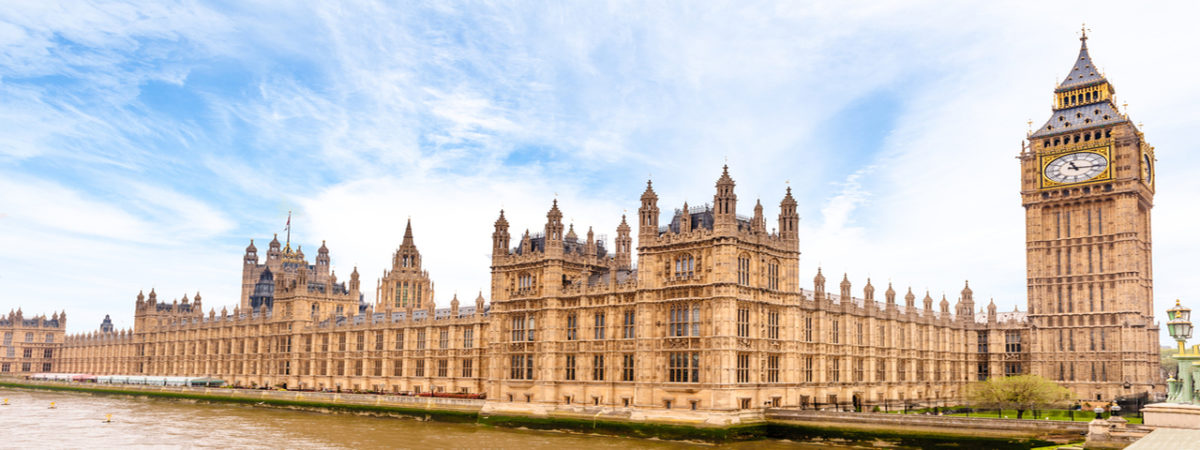Renationalisation would “ignore the lessons of history”, finds new IEA report
SUGGESTED


IEA responds to the Queen's Speech

Renationalisation: Back to the Future, written by IEA Economics Fellow Julian Jessop and IEA Editorial and Research Fellow Professor Len Shackleton, explores the case for restoring water, energy, the Royal Mail and the railways to public ownership.
Polls suggest that renationalisation would be popular with the general public and it is backed by several political parties. However, the new report finds that privatisation has had significant benefits which are often forgotten.
Despite some legitimate concerns over their recent performance, renationalisation of these industries is unlikely to resolve the current problems – and could well create new ones. Indeed, many of these problems are due to poor regulation and government meddling, which would be made worse under public ownership.
Instead of renationalising large swathes of the economy, Jessop and Shackleton explore other possible reforms of the structures and regulation of these industries, while keeping them within the private sector.
The authors conclude that it would be more sensible, where necessary, to strengthen the regulation of these businesses, with a focus on reinforcing market mechanisms and allowing more competition. Bringing them back into public ownership would be a disruptive and costly distraction.
Key findings in the different sectors include:
Water:
- If there’s one industry where it should be possible to make a decent case for renationalisation, it’s water. The water and sewerage utilities provide an essential service, have some feature of a ‘natural monopoly’, and need high levels of investment that could, in principle, be financed more cheaply by government.
- However, a closer look at this sector shows that the performance of private companies has generally been good and is improving, while much more could be done to increase competition for retail customers. In contrast, the scope for lower borrowing costs is relatively limited.
Railways:
- Some of the problems of the railways have arisen because the government has meddled too frequently and been over-prescriptive in its franchising policy, to the extent that it has made bidding for new franchises commercially unattractive.
- The part of the railways which the state controls directly, Network Rail, has a poor record for completing work on time and maintaining the infrastructure, leading to costly knock-on effects on passenger service which have unfairly damaged the achievements and reputations of the private train operating companies.
- Renationalisation would reduce competition on some parts of the network where there is currently a choice of providers. It might improve coordination between the different parts of the sector, but there would still be a need to fit private freight services and any remaining open access passenger services into the overcrowded timetable, and it would be unlikely to eliminate the delays and disruptions which are a major source of consumer complaints.
- Public ownership of passenger services would do nothing to resolve the other main issue worrying the public: fares.
- Reducing the share of costs covered by passenger revenue and covering the deficit from taxation would suit commuters and regular travellers, but this would mainly benefit higher income households in London and the South East.
- Cheaper fares in peak times would increase overcrowding, another concern. To increase capacity to deal with this would be yet another charge on the taxpayer – and it would be wasteful if it led to rolling stock running nearly empty, or parked in sidings, outside rush hours.
Energy:
- While privatisation was initially a considerable success story, its problems in recent years are largely the result of increasingly ham-fisted government and regulatory interference, particularly over prices (where allegations of ‘rip-off’ pricing lack credibility) and the promotion of renewable energy.
- While it may be sensible for government to encourage practices that are more friendly to the environment, competition in finding ways to reduce carbon emissions is likely to be more effective than state control.
Royal Mail:
- The business has struggled and failed to diversify as a result of old-fashioned working practices and heavy trade union influence, which renationalisation would only make worse.
- The universal service obligation is a particular concern in Scotland and Wales, given the remoteness of some communities, and may be worth maintaining. But this could be done by providing a direct subsidy rather than by bringing the business back into the public sector.
Furthermore, Jessop and Shackleton highlight the issue of compensation to private shareholders, which so far has been treated superficially. They argue that:
- Below-market valuations may prove deeply unfair as shareholders today are not necessarily those who benefited from higher dividends in the past.
- Many of the candidates for renationalisation are majority-owned by overseas investors. This would make compensation far more difficult than in the past.
- Foreign nationals would be in a strong position to challenge attempts to acquire assets at less than market value, which would damage the UK’s reputation for upholding property rights. This could also lead to retaliatory measures against the UK’s own large stock of overseas investments.
The report warns that despite support for renationalisation from some political parties, it seems unlikely that there will ever be complete consensus. Future governments might therefore re-privatise, or threaten to do so. The uncertainty and instability created by this sort of ping-pong policymaking could damage the performance of these industries, harming the interests of both customers and taxpayers.
Commenting on the report, IEA Economics Fellow and co-author Julian Jessop said:
“Most of the potential benefits of renationalisation could be achieved in other ways, including better regulation and more competition.
“In contrast, the potential costs are huge, especially if returning these industries to state control reverses the substantial improvements in performance since privatisation.”
Commenting on the report, IEA Editorial and Research Fellow Professor Len Shackleton said:
“The public’s dissatisfaction with some aspects of the performance of privatised utilities should not lead us to forget the lessons of decades under nationalisation.
“Taking these industries back into the public sector would reduce consumer choice and innovation, while holding back productivity and boosting the power of trade unions and other unrepresentative pressure groups.”
Notes to Editors
For media enquiries please contact Emily Carver, Media Manager: 07715 942 731
Download the report Renationalisation: Back to the Future here.
The mission of the Institute of Economic Affairs is to improve understanding of the fundamental institutions of a free society by analysing and expounding the role of markets in solving economic and social problems.
The IEA is a registered educational charity and independent of all political parties.



